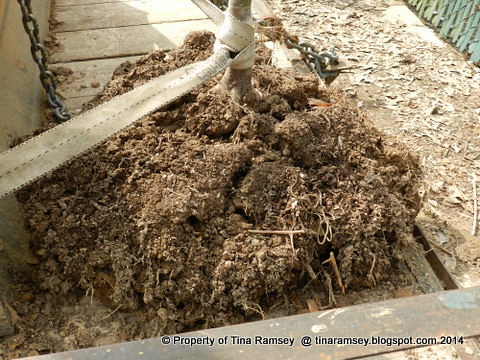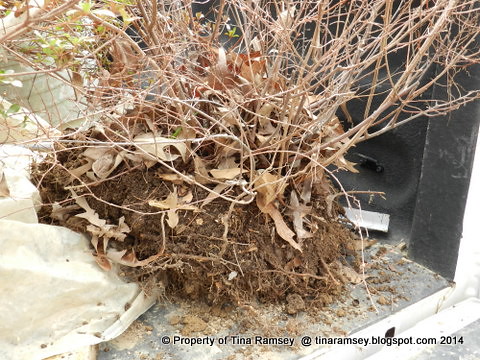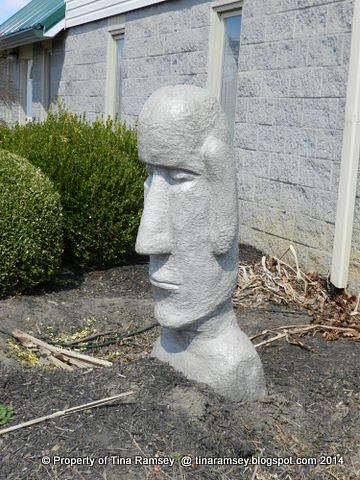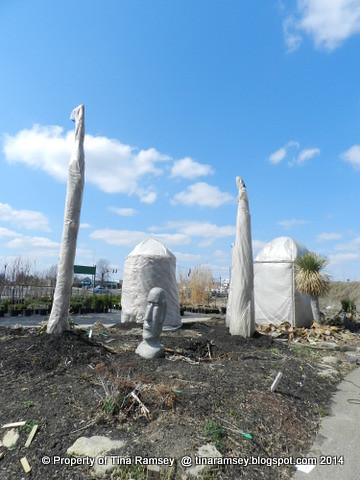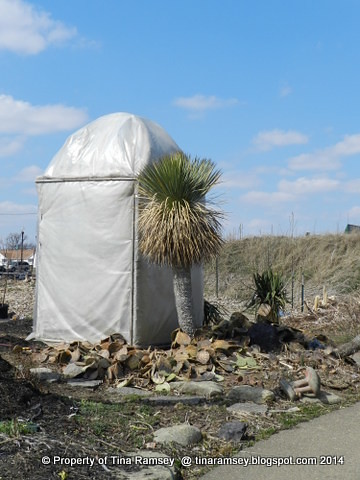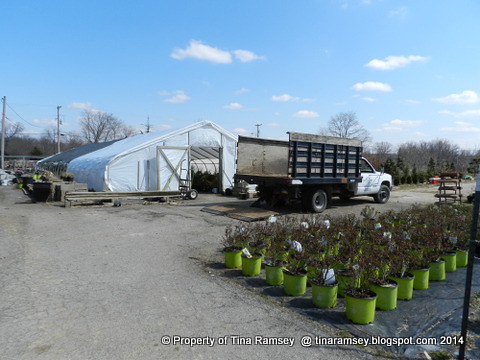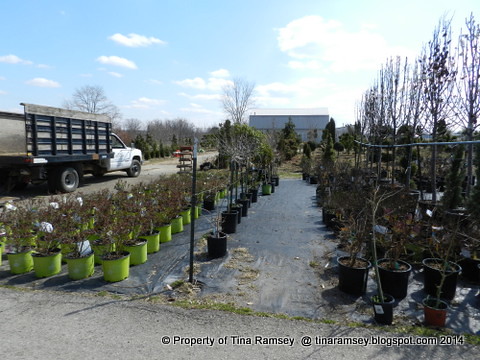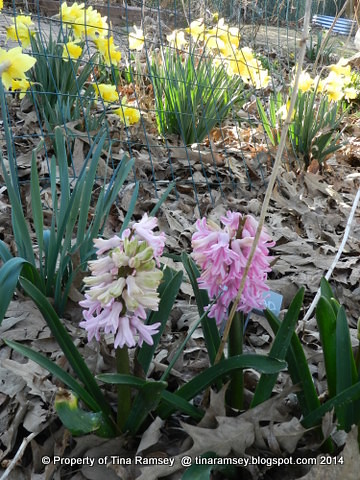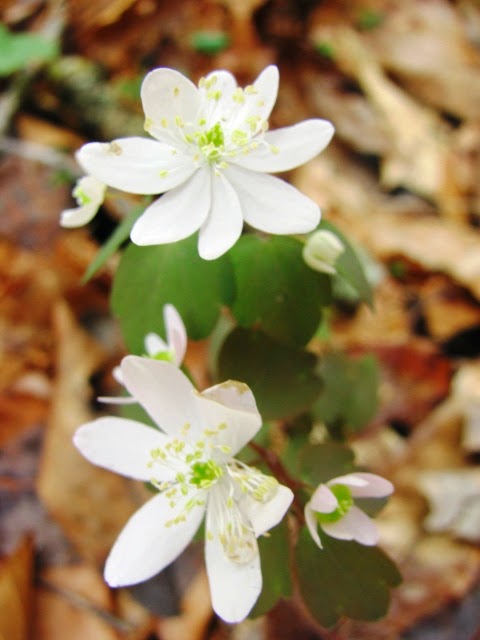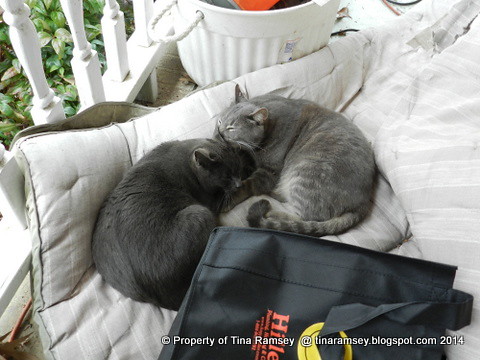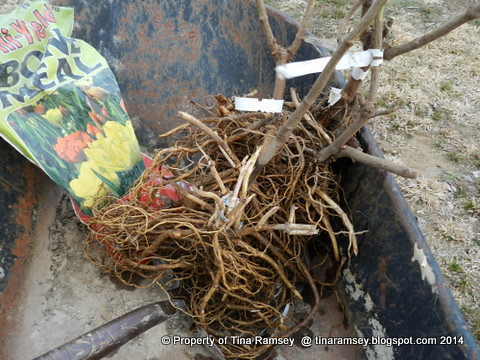
If you are a follower of my Facebook page you may remember I posted that I was planning to buy some honeyberries for my orchard on our farm. Well, after more investigating I found that honeyberries are actually in the honeysuckle family and may spread themselves around. This is not something I want for our farm so I cancelled that order and ordered a native plant-elderberries. Now for the funny part, elderberries are also in the honeysuckle family and will for sure spread themselves around. Sigh. I may yet order some honeyberries at a later date but for now let's talk about the elderberries.
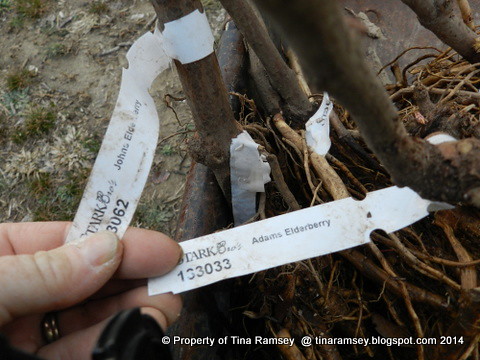
Elderberries are a native plant and this is something I desire for my new gardens on the farm. For the most part the farm is fairly free of a lot of invasives and non naturals with the exception of Japanese honeysuckle. That stuff is everywhere on the land that there is sun. Mr. Fix-it and I are trying to control it but it is a neverending battle. Honeysuckle is pretty, smells good, and grows well but it absolutely will strangle trees when given a chance so it has to go. Elderberries are native and can certainly spread themselves around (with a little help from wildlife and suckering tendencies), but even if they do spread themselves around I feel fairly confident the elderberries will not strangle other native plants and will in fact benefit the local wildlife, and hopefully the local humans too! In fact, elderberries were the 'Herb of the Year for 2013' as named by the International Herb Association. In my experience plants chosen as a plant of the year are usually good plants so I took a chance on the elderberries.
I purchased four elderberry plants from Stark Bros. I have always noticed the beautiful flowers of elderberries alongside highways growing in ditches. From the road it always looked to me like the plants were growing more like bamboo than a shrub. I was a bit surprised to get shrubs and not the canes I was expecting. The plants came bareroot and were in great condition. I could not believe just how big the roots of the barerooted plants actually were. I bet they extended two feet out from the crown of the plant. The roots were dense, fleshy, and a big old tangled mess. The woody part of the plants looked good and on a few of the bareroot elderberries there was actually new growth. The first picture shows the four plants straight from the box to my wheelbarrow as I prepare to plant them. It is always best to get bareroot plants into the ground as soon as possible but if you cannot, just store the bareroots in a bucket of water. I've successfully done this for a few days.
Elderberries are not self pollinating so you will need more than one variety. The two cultivars I ordered are 'Adams' and 'Johns'. I ordered two of each type. These are American type elderberries (Sambucus canadensis). There are also European elderberries (Sambucus niger) but I tend to stick to the American types for no particular reason other than I am American and thought that for America the American types would suit me best.
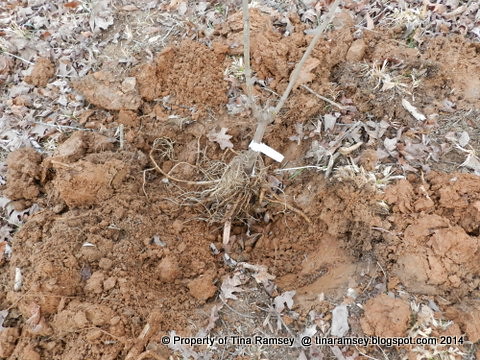
Siting elderberries is not too difficult. I did not place these plants in my orchard because that area is already planned out quite meticulously there and I do not want to start just placing more plants in the area. Instead, I decided on a native area in our Back-40 area that is still easily accessible from the living area of the house. The elderberries would like a nice sunny area to perhaps part shade (I think the more sun the better so stay away from shade if you can), good drainage, and a moist, loamy soil with organic matter. I chose a southern exposure near some oak trees on a slightly sloping hillside. I grouped the two 'Adams' in a front row with the two 'Johns' in a back row offset between the 'Adams'. 'Johns' will get larger than the 'Adams' so 'Johns' is somewhat on the downside of the slope. The four plants are spaced approximately 12' apart in a trapezoidal type area.
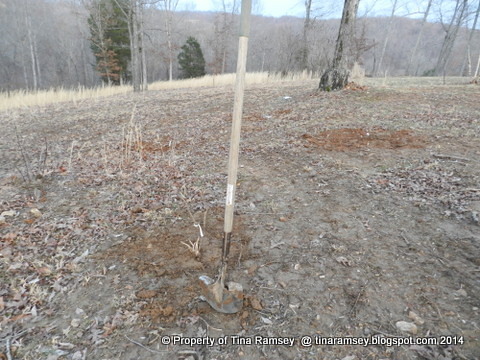
I amended the soil with bonemeal. If I had had compost or rabbit droppings available that would have been a much better amendment but in a pinch I always use bonemeal as a backup. I've never gone wrong adding bonemeal to newly planted plants tho some would say using it is an old wives tale. Hey, it can't hurt and I, for one, swear by its use so use bonemeal if you don't have some good compost. Even if you do have compost bonemeal is still a good thing in my book.
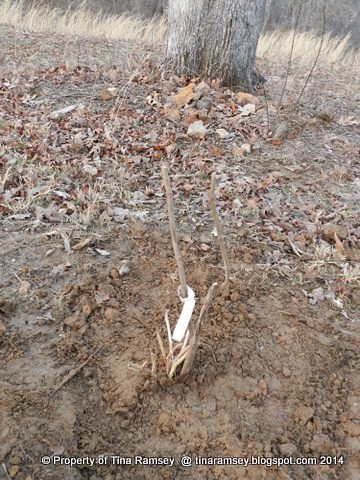
I had to dig the holes about two feet wide and nearly as deep. I spread out the roots and backfilled well ensuring there were no air pockets in the soil. Water well after you plant anything or try to plant prior to a rain coming in. Now I can sit back and wait on these lovely plants to begin growing. I suspect that by next year I'll have flowers and even berries-providing I can get to the berries before the wildlife. Deer and birds are fans of elderberries and we have plenty of both on the farm.
While we are on the subject of planting I have been extremely busy planting other plants too. The elderberries were relatively easy to plant because I could lift the plants. The above Japanese maple took my husband and son a great amount of work to lift it onto the trailer. When I planted it I kind of let gravity do that job by dropping it off from the trailer and rolling it in place. It never fails to amaze me just how heavy root balls can be. The root balls of most of the shrubs and trees I have dug have wound up being about three feet wide and one foot high. This is a pretty heavy root ball, but a big root ball is great for ensuring the plant will survive the transplant. I wound up moving seven large upright Japanese maples. I will be leaving behind five mature Japanese maples in Tiger Gardens that were either too mature for me to dig or which were in gardens where I had plants I did not want to risk moving to the farm. The upright Japanese maples line a 250 foot section of my driveway that is located under mature hardwood trees. The driveway has a red and yellow theme going on and I will share it on here at a later date. I have two more weeping Japanese maples that will require moving once I have a spot for them.This probably will not happen until this fall sometime.
The last root ball I show is a Japanese spiraea. This spiraea has been in place in Tiger Gardens since about 2003. It was not as difficult to dig up as the Japanese maples were because the roots were not so woody, but the root ball is nearly as large and fairly heavy too. In addition to these few shrubs I dug up quite a few red azaleas. All shrubs and trees have taken quite a lot of work but came out nicely. The azaleas came with extras because many of the outlying branches had rooted over the years. I was delighted to get over 20 red azaleas from just five to begin with. I never realized azaleas would roots like this.
The garden is coming along fine and we are looking forward to not only seeing our new elderberries grow but also all of the newly transplanted shrubs and trees....
in the garden....
Words and Photos Property of In the Garden Blog Team, In the Garden
